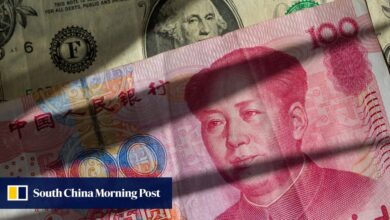Chinese taxman’s secret weapon to crack down on evasion: phase IV of the Golden Tax System


A key function is the control of the creation of invoices, known as fapiaos – a legal receipt that serves as proof of purchase for goods and services.
Phase IV of the Golden Tax System aims to build an information-sharing system among financial institutions, taxpayers and tax authorities. The integrated system will help tax authorities collect and analyse tax-related data from more fields to improve tax supervision.
In particular, phase IV will see a full digitalisation of invoices. China’s invoicing process is a crucial component of the country’s tax system.
By the end of 2023, all provinces in the country had launched digitalised fapiao pilot programmes. The exact date of the launch of the national e-invoicing for submission and exchange of digitalised fapiao has yet to be confirmed.
So, while the nationwide deployment of phase IV is not yet fully complete, some functions are already operational.
Why is the Golden Tax phase IV significant to China?
Tax evasion remains a problem in China despite efforts by Chinese regulators to improve tax-collection efficiency and streamline the process. In its annual report published on June 25, China’s National Audit Office determined that loopholes and oversights at customs and various tax departments had led to losses of 50.8 billion yuan (US$7.1 billion) in tax revenue.
There were high-profile tax scandals involving Chinese celebrities over the past few years, as well as recent cases in which listed firms were asked to pay decades-old overdue taxes – all of which served to underscore public concerns over local government debt woes amid weak confidence among businesses.
China is also set to introduce consumption-tax reforms to boost local governments’ revenue, and the Golden Tax phase IV would support such efforts.
The Golden Tax phase IV would make it easier for regulators to spot tax irregularities in companies that are using false bank accounts and false invoices. The system can also enable better assessment of shell companies, flag abnormal tax declarations, and help determine whether companies’ inventory records match their actual inventory.
Firms with a serious mismatch between income and cost, as well as those not paying individual income tax and social insurance premiums on time, could also be identified with the system.
We believe that enterprises need not be overly concerned
What are companies’ specific concerns with phase IV of the system?
The data-sharing system has led to concerns over data privacy, with businesses and their owners worrying that their bank accounts, as well as their overseas assets and investments, will also be monitored by Chinese authorities.
The integration of Golden Tax phase IV involves the collection, storage, and processing of a large amount of corporate data, making data privacy a critical issue.
Tax consultants said while there is little that companies can control when it comes to data-sharing between government departments, the Golden Tax phase IV has implemented a series of protective measures during its design and implementation, such as data encryption and access controls to ensure the security and integrity of tax data.
“Tax authorities may need to provide an investigation certificate issued by the People’s Court to access a company’s bank account information. In this context, we believe that enterprises need not be overly concerned,” said Alberto Vettoretti, a managing partner at Dezan Shira & Associates.
What are companies doing to meet the new requirements?
Companies operating in China will need to increase investment in technology via digital transformations and upgrades, with analysts expecting that companies will need to purchase relevant services from technology providers to aid in the digitalisation of invoices and related cloud services.
Vettoretti has advised companies to clearly define the purpose and scope of data use, establish sound privacy-protection mechanisms, protect taxpayers’ personal privacy and corporate trade secrets, and prevent data misuse or leakage.
Under the Golden Tax phase IV, the tax arrangements of high-net-worth individuals and multinational enterprises may face stricter scrutiny. Foreign investors need to be aware of these changes and ensure that their tax arrangements comply with legal requirements, he said.
“Companies should instead focus on the authenticity, accuracy and completeness of their financial and tax data, as well as the compliance of their financial and tax arrangements,” he said.
Source link



